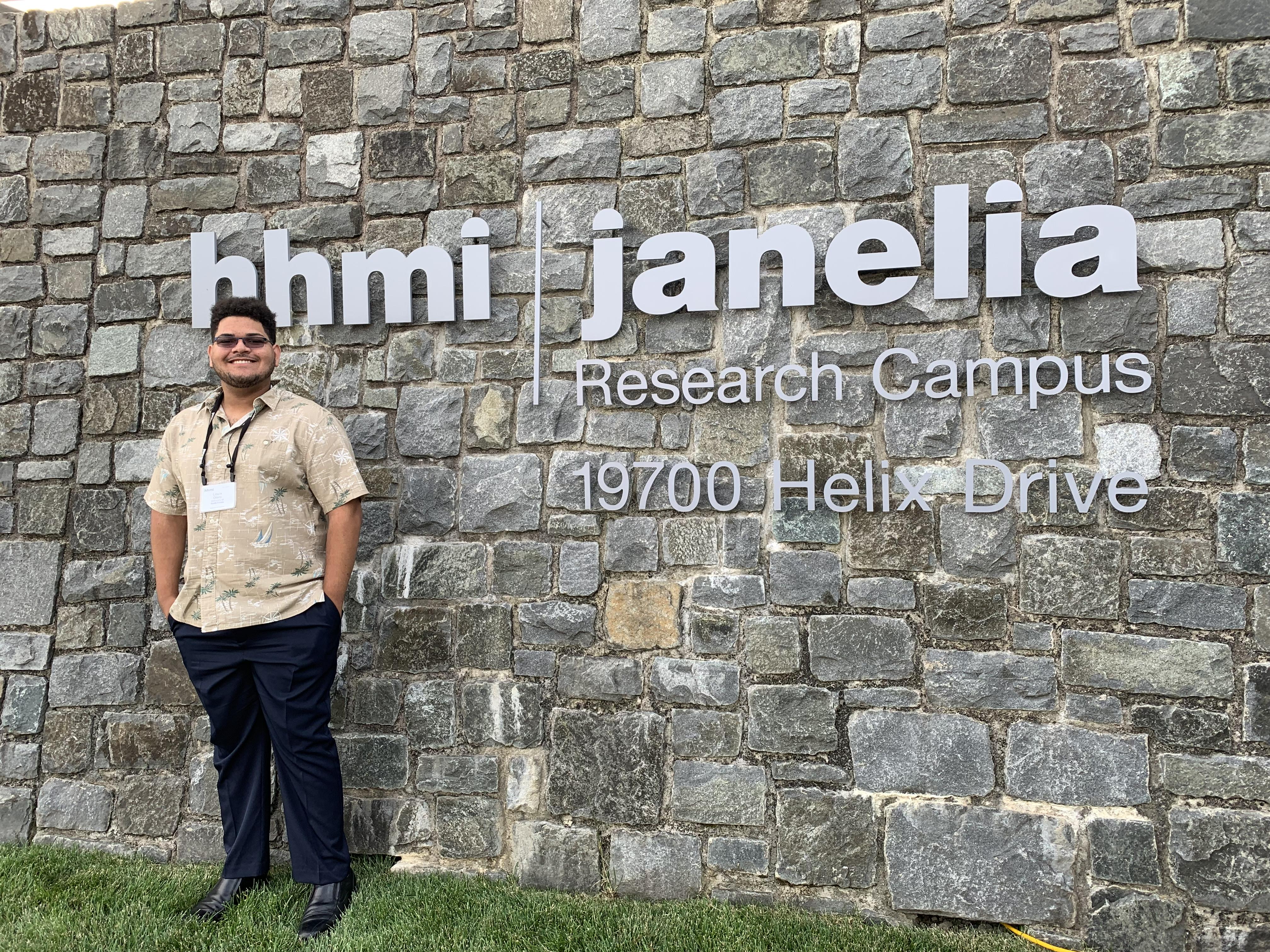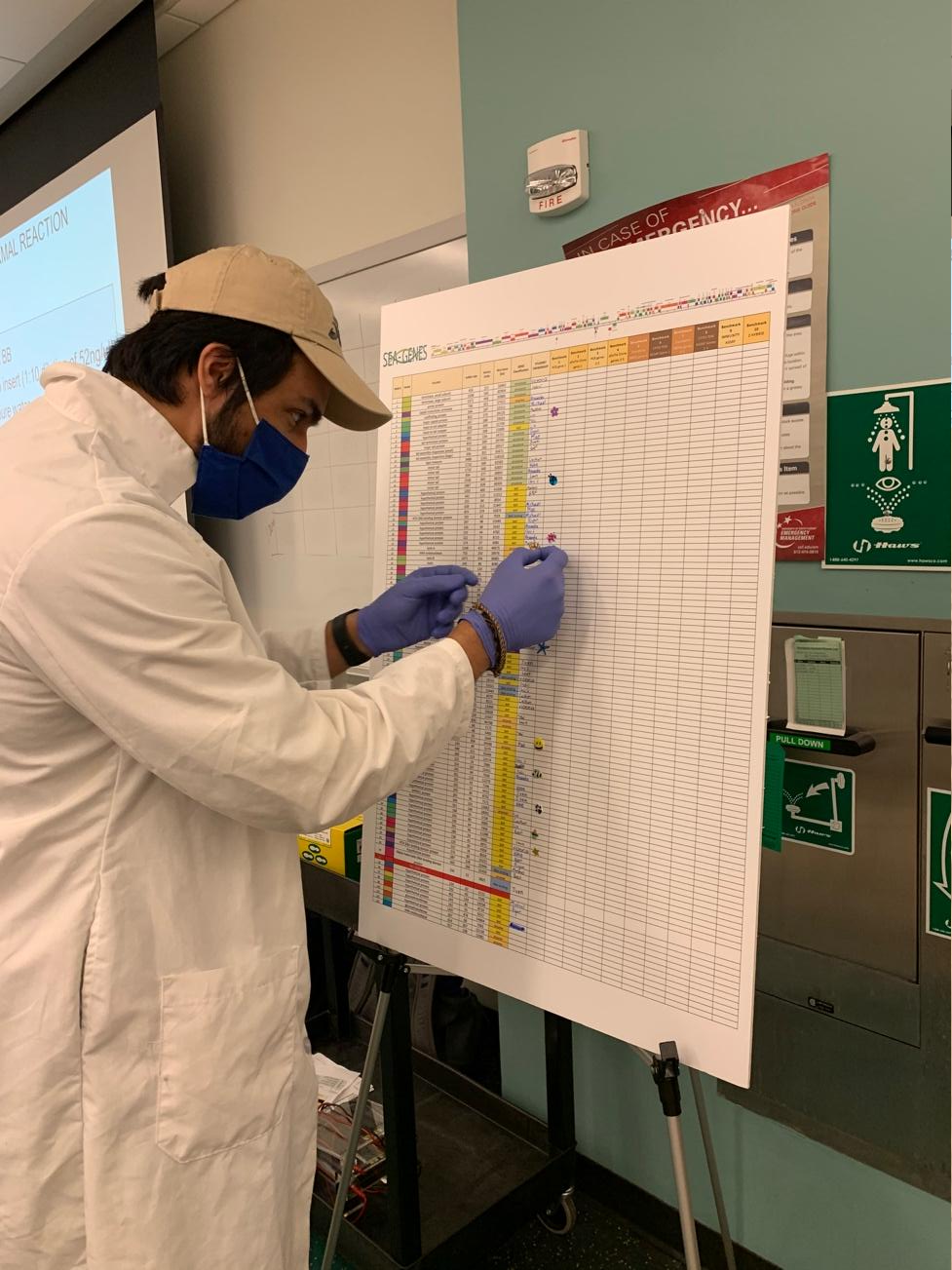About Doc P's Phage Hunters
What is the Doc Ps PHAGE HUNTERS SEA PHAGES experience?
SEA PHAGES Wet Lab (Fall Semesters only)
SEA PHAGES is a two-semester sequence. The first semester is run every Fall semester as the Discovery Wet Lab experience were students find a unique actinobacteriophage from a soil sample that they will collect and process. The research then progresses through purification and amplification of the phage. Once a highly concentrated sample of the pure phage has been generated, students will characterize the phage through:
- 1. analysis of its DNA,
- 2. analysis of its morphology through electron microscopy and
- 3. analysis of the phages protein profile.
ELIGIBILITY: At USF, SEA PHAGES is run through the BSC2010L (Intro Biology) lab, thus students are only eligible to take SEA PHAGES if they do not already have BSC2010 credits through transfer or Dual Enrollment credits. Students with AP credits ARE eligible to take SEA PHAGES and encouraged to consider the opportunity!

Students from 2021 prepare phages for plating.

Students from section A of the 2019 cohort (note the students with T-shirts of their phages EM images!)

Winners of the 2021 end of semester PHAGES THROWDOWN!
SEA PHAGES Bioinformatics (Spring Semesters only)
The second semester of SEA PHAGES is run every Spring semester and constitutes undergraduate research credits that can be applied to elective credits for Biology majors or upper level 400-level credits for non-Biology majors. In the SEA PHAGES Bioinformatics course students will annotate the genomes of 2-4 phages that were isolated during the Fall semester. This is a “brains-on” experience utilizing sophisticated online databases and analysis programs such as NCBI-BLAST and HHpred. Students will also learn to curate and analyze data using phagesDB, Phamerator, DNA Master and other protein and DNA analysis tools. The outcome to the analysis will be publication of the genome annotation is the NCBI GenBank repository (see Akoni) and also the writing and publication of aMicrobiology Resource Announcement published by the American Society of Microbiology. Students will also develop presentations for the USF Research Symposium and theAnnual SEA PHAGES Symposium. If time permits, students can also develop independent research projects.
ELIGIBILITY: Students who are not eligible to take the Wet Lab course, may take the SEA PHAGES Bioinformatics course after consultation with Dr. P.

Louis Otero (BS 2022) Attending the SEA Symposium
SEA GENES (Spring Semesters Only)
SEA GENES (Science Education Alliance- Gene-Function Exploration by a Network of Emerging Scientists) runs every Spring. In SEA GENES students will utilize advanced cell/molecular techniques to evaluate the function of individual genes from a specific phage. First, the genes will all be amplified and cloned into an expression plasmid. Second, these plasmids will be introduced into bacteria. Third, the gene will expressed and students will utilize two differentassays to evaluate whether the expression of the gene is toxic to the cell or whether the expression results in immunity of the bacteria to phage infection. Finally, students will investigate candidate genes that are toxic to determine if the protein is interacting with known bacterial proteins. Since all data is archived at the National level, the reagents produced by the students in the program are available for research. Once all genes from a phage have been evaluated, the data will be published and all students who participated in the program will be authors.
ELIGIBILITY: SEA GENES is run using the combined lab format with PCB3023L (cell biology lab) and PCB3063 (genetics lab). Thus, students wishing to take SEA GENES must complete the lecture portions of PCB3023 and PCB3063 before taking GENES or concurrently. It is recommended that student take PCB3023 (cell biology) in the Fall semester prior to taking GENES and the take PCB3063 concurrently with SEA GENES in the Spring.

Marshall adds a sticker to the data outcomes chart to indicate a phage gene has been cloned.
Click here for a PDF of the SEA PHAGES ➔ SEA GENES trajectory.